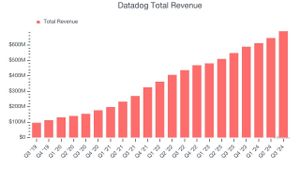Authorities from Cantinela, Hidalgo, have surprised residents by implementing an absolute ban on the sale and consumption of Coca-Cola and Corona beer. The controversial decision has received widespread attention and criticism, resulting in fines of up to 5,000 pesos for violators.
The ruling was unveiled through public notices distributed throughout the community, making it clear to both vendors and consumers: any transaction involving these products is subject to enforcement. The prohibition has ignited debates among locals about its rationale, and though no official reason has been disclosed, several theories have begun to circulate.
Reported by various outlets such as Infobae and El Universal, unverified sources have suggested the ban might stem from informal agreements with rival beverage companies. The local delegate is said to have negotiated the specific exclusion of Coca-Cola and Grupo Modelo products, potentially aimed at securing financial aid for the community.
Another angle of speculation revolves around public health. Coca-Cola, along with other sugary drinks, has long been associated with rising obesity and diabetes rates, leading to government interventions such as warning labels on processed goods. Supporters of the ban see it as a progressive step toward healthier consumption habits.
Notably, some social media users have posited the prohibition is part of larger anti-American sentiment, particularly linked to recent boycotts against brands like Coca-Cola for allegedly supporting U.S. policies considered detrimental to Mexican interests. While these theories circulate, no substantial evidence directly connects the ban to these broader movements.
The legality of the ban hinges on local customs, as some communities operate under traditional governing systems allowing them to impose their own regulations. Such measures have been seen before, where communities ban distribution of certain goods to promote local commerce or for other specific reasons.
The populace has expressed divided opinions following the ban. While some locals welcome the shift toward potentially healthier options, others argue the economic ramifications could be severe, especially for small businesses reliant on sales of these popular beverages. The imposed fines have been deemed excessive by many, particularly within this largely rural community where low incomes are commonplace.
Mainly, the situation raises questions of enforcement and compliance, as authorities insist the ban must be adhered to without exceptions. Local announcements clearly state: “To all citizens of Cantinela, the sale and purchase of Coca-Cola and Corona products are strictly prohibited within any establishment. Violators will incur fines starting at 5,000 pesos.”
The community atmosphere is tense, with apprehensive reactions fueling discussions about both the immediate and long-term impacts of such local governance. Residents continue to seek clarity and transparency surrounding the decision, and without official confirmation from local government, the billowing uncertainties remain ripe for conjecture.
While some are rallying behind the health argument, others remain skeptical about the true motivation behind the ban. What remains clear is the division it has created, leaving many questioning what the future will hold for Cantinela and its residents amid this surprising turn of events.
At this time, the official status of the ban remains uncertain. Until confirmed by the local authorities, the authenticity of the enforcement communicated through public notices will continue to be debated. Locals await guidance—both on compliance and the rationale for such drastic measures—while discussions around the broader societal impacts of these decisions intensify.



